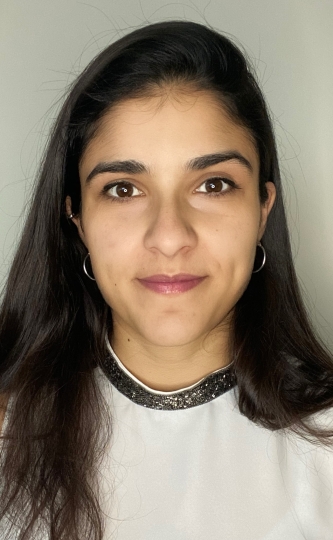Taciana Pereira, S.B. ‘17
Taciana Pereira, S.B. ‘17, has been named chief executive officer of Systemic Bio, a company that uses 3D bioprinting technology to advance drug discovery and development.
Systemic Bio is wholly owned by 3D Systems, which produces 3D-printed organs-on-chips that work as models of vascularized human organs such as the heart and lungs.
Pereira, a bioengineering student at the Harvard John A. Paulson School of Engineering and Applied Sciences (SEAS), began her career in 3D bioprinting in 2017 at Allevi, then spearheaded its acquisition by 3D Systems. She became vice president and general manager of bioprinting at 3D Systems in April 2021, a position she held until Systemic Bio formed earlier this fall.
“For me, this is the perfect convergence of my personal passions, a great opportunity for the company, and amazing technology,” Pereira said. “My personal motivation when I was a sophomore declaring in bioengineering was that I wanted to contribute to cancer treatment. I lost all of my grandparents to cancer when I was a kid. When I found out about bioprinting and looked at different ways I could replicate tumors to test treatments, I realized there was a big market for us to go after.”
Pereira researched cancer immunotherapies with David Mooney, Robert P. Pinkas Family Professor of Bioengineering, at SEAS. She joined Allevi immediately after graduation in 2017. Her work at Allevi included using its lung models to study the progression of COVID-19.
Wanting to scale up Allevi’s bioprinting capacity, she reached out to 3D Systems.
Systemic Bio has already raised $15 million in seed funding. Pereira’s initial goal was to generate enough data to show the effectiveness of the company’s organs-on-chips, which could then be used to close partnerships with pharmaceutical companies and begin testing specific drugs on specific disease and organ models. The company currently has 15 employees and is hoping to double that next year.
“We’re hiring at all levels and across engineering disciplines, including computer science and electrical engineering,” Pereira said. “We just want problem solvers. We have a lot of bioengineering expertise and are still hiring for that, but we also want general product engineering talent.”
Press Contact
Matt Goisman | mgoisman@g.harvard.edu
